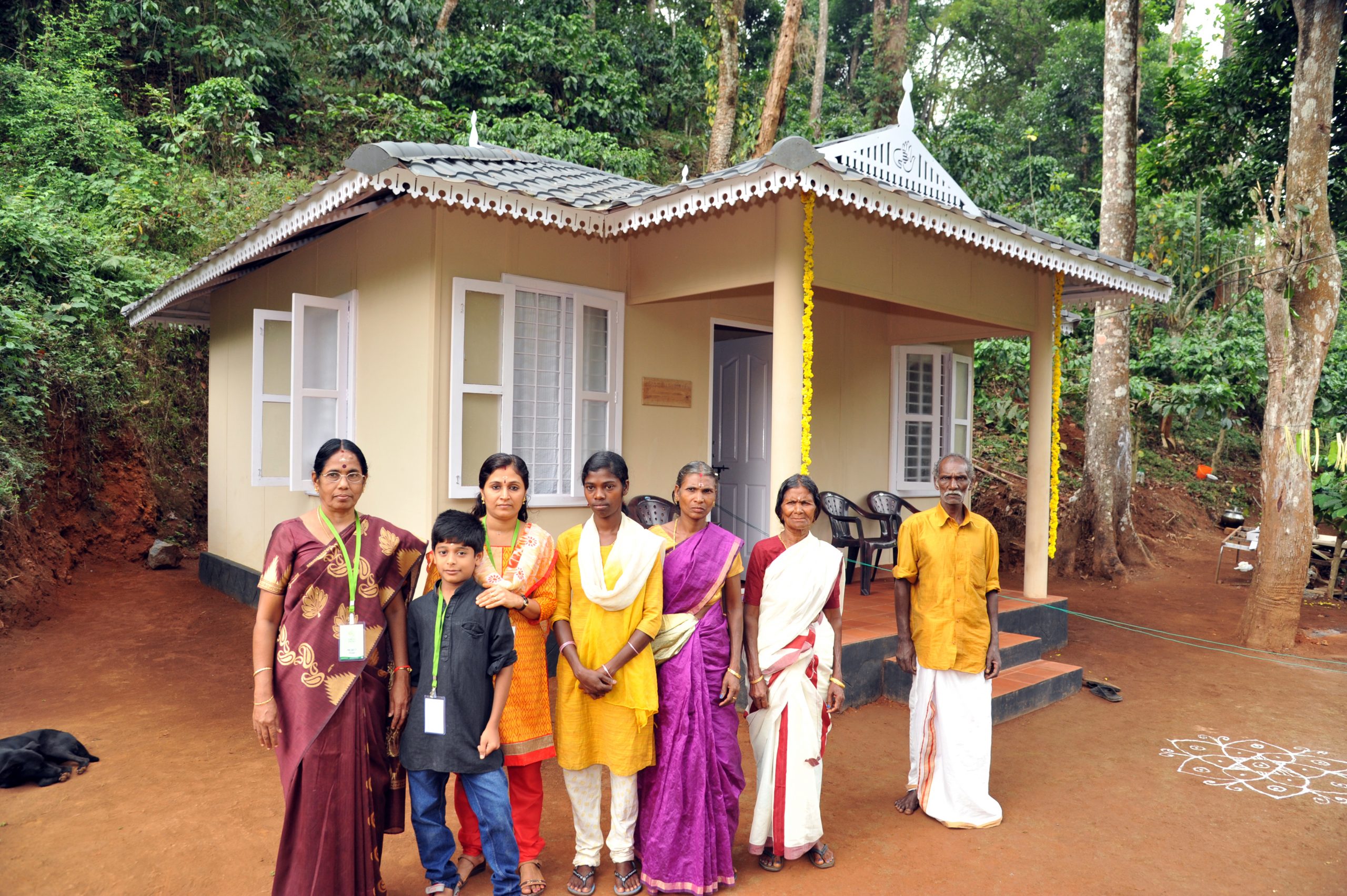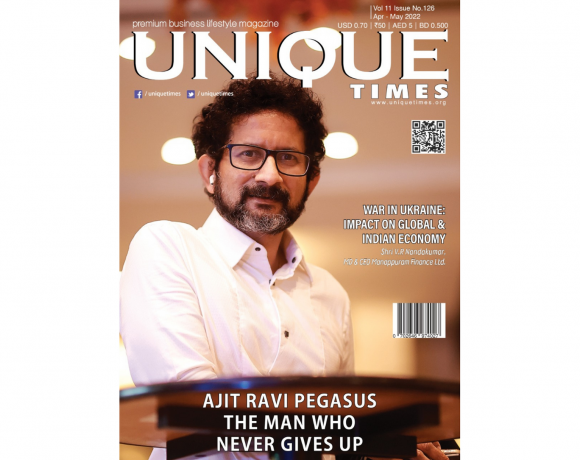Connecting with my tribe ; Aji Krishnan, HRDS INDIA
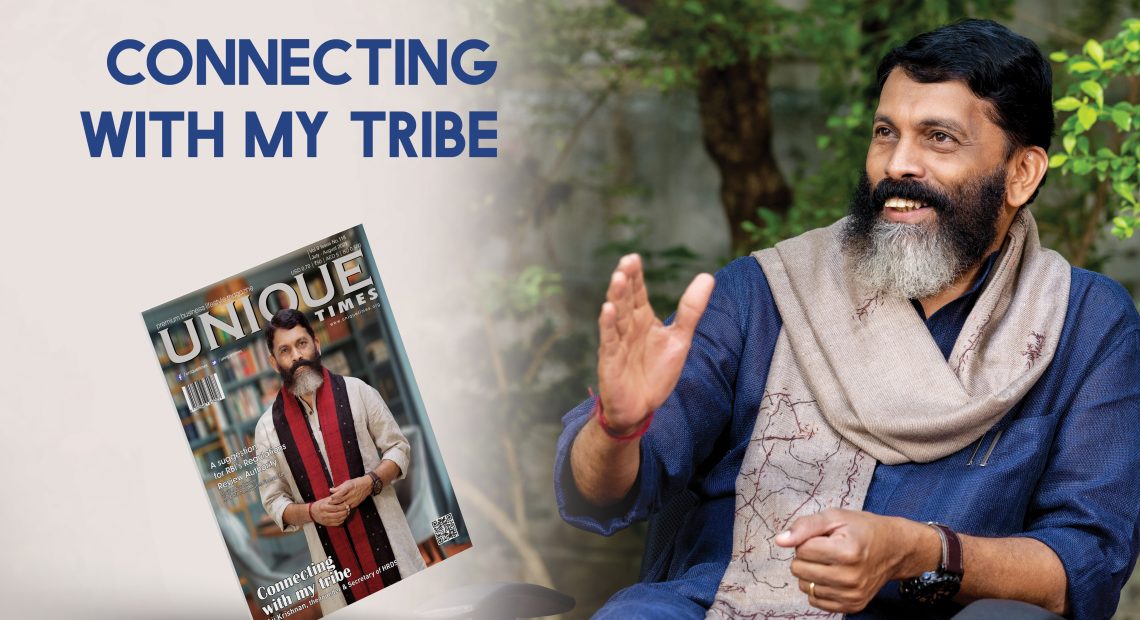
Aji Krishnan, the founder and secretary of HRDS INDIA, work in tribal settlements has begun to blur the social divide. The rise of HRDS INDIA from a single idea into a massive voluntary initiative is rooted in his traditional townlet beliefs and experiences as a social development specialist and dedicated volunteer. In a conversation with The Unique Times, he shares how the work brings strength and solace to a community in dire need of basic needs.
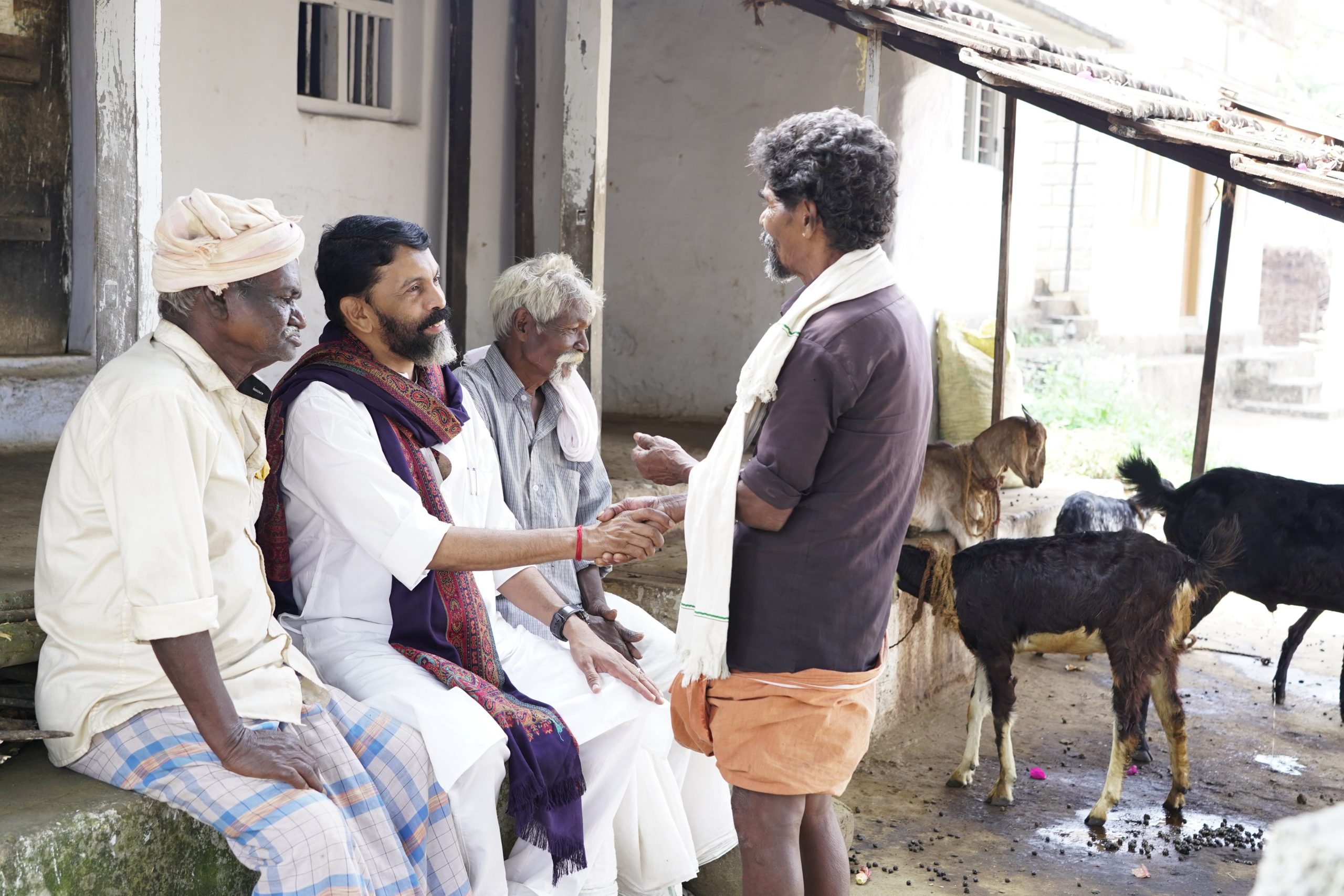
Ten years ago, Shakti and Sandhya, aged 8 and 12, who lived in the tribal hamlet of Vattalaky in Attappady, Palakkad were tilling the field under the scorching sun. It was March, the summer was at its atrocious peak. The two young ones were trying to dig out tubers from the dry land to satiate their hunger. Even sweat dried before it trickled down their spine from their foreheads, remembers Ranjitha, a field worker for The High range Rural Development Society HRDS INDIA, an NGO that works for tribal welfare, headquartered in New Delhi and with a project office in Palakkad.
But the fortunes of this family changed after HRDS took them on board. Aji Krishnan, the founder and Secretary of HRDS INDIA remembered the first time he met these children. “Their mother, Malli was working at a nearby home as a maid to eke out a living. Their father Selvan had died a few years ago due to intestinal cancer. The children who were earlier put in a school, dropped out of it as there was nobody to watch over them. I still remember how famished and worn out these two children looked when I went to meet them after my volunteer group spotted them.” It’s been 3 years since our NGO adopted this hapless tribal from the Kurumba community, traditionally known to be bee collectors of the forest,” recollected Krishnan.
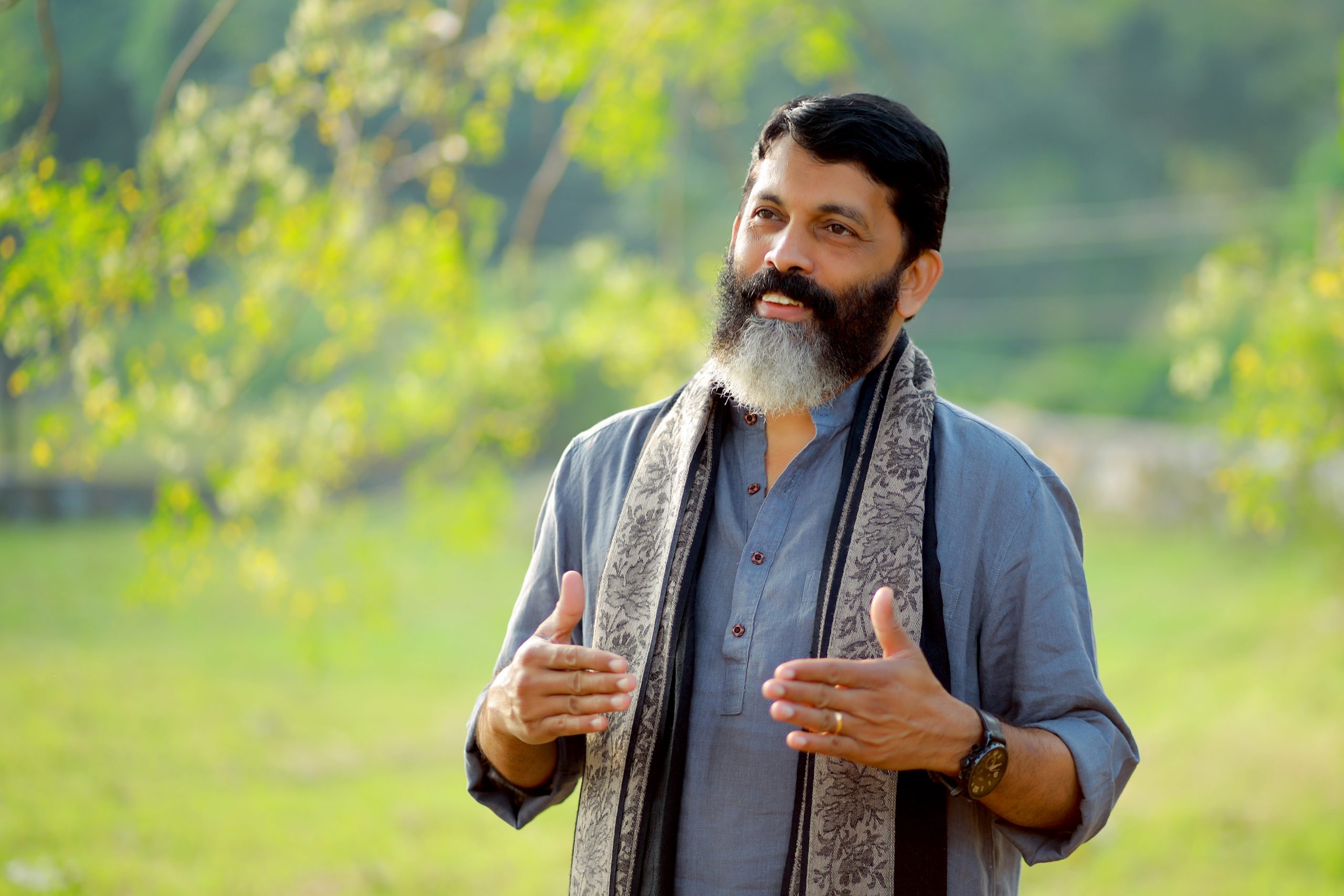
Krishnan enrolled them in the HRDS Green School soon and today, these two children have been enriched with the armour of education. “It is heartwarming to see the transformation of them in the last 3 years since they have been with us. Shakti wants to be an engineer and Sandhya dreams to get a job in railways,” says Krishnan, with a contented smile.
Like Shakti and Sandhya, HRDS has been able to transform the lives of over 350 children through its educational outreach programme. The Green School at Attapady alone houses 46 students.
But, enrolling tribals on formal education is not a cakewalk for NGOs like HRDS. There are several cultural, social, and logistic hurdles to sustain the education of children in tribal hamlets. At first, is the language barrier. The predominant Irula, Kurumba, and Muduka tribe, for instance, has their dialect but no script and has no semblance with the Malayalam language the official language of Kerala. This disabled them to mingle and interact with fellow students in government-run schools.
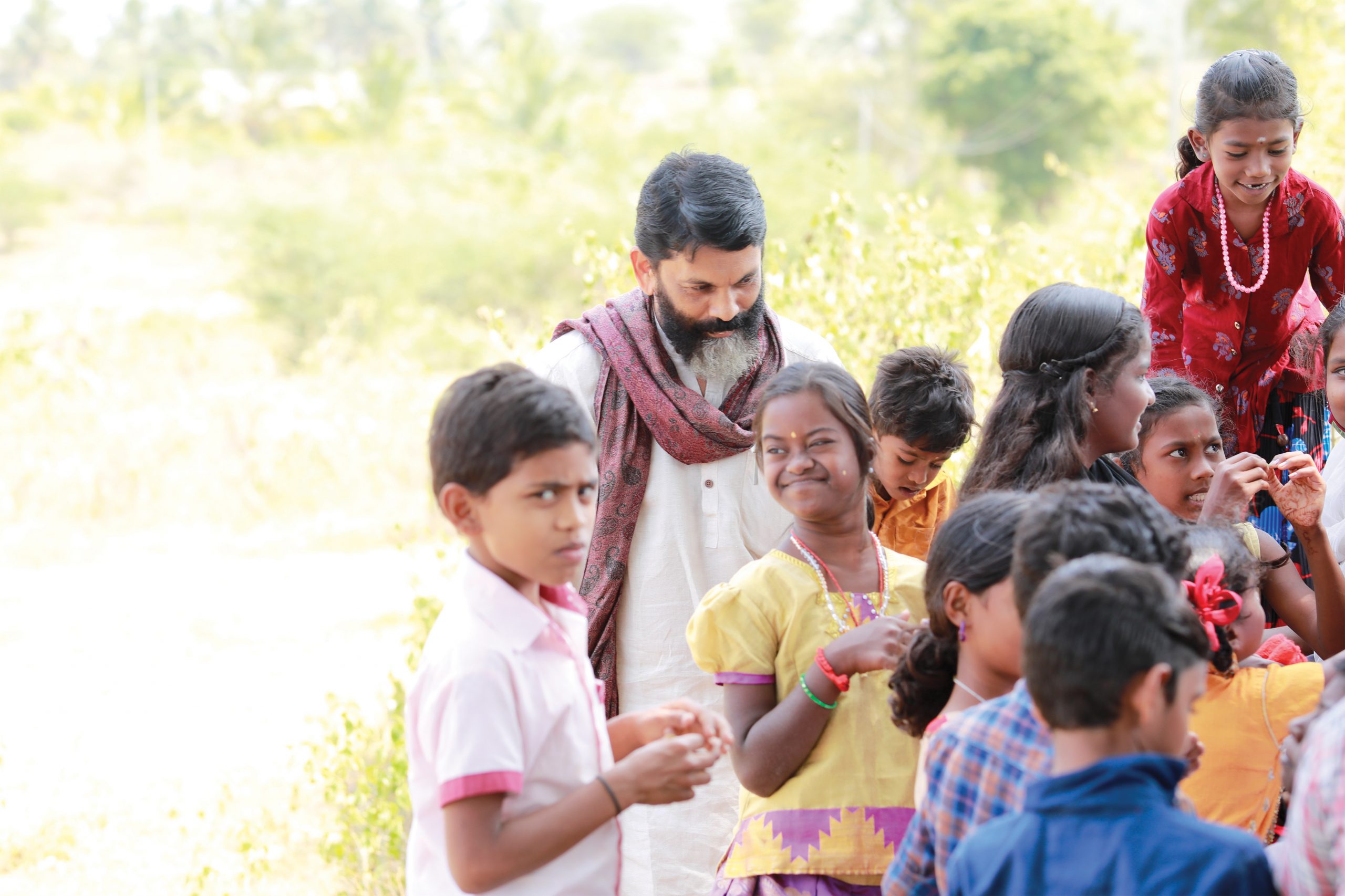
“We had to synthesise and create a completely new set of curriculum and teaching methodology that would preserve their cultural language and knowledge at the same time, equip them with contemporary education that would not take them off their cultural roots,” says Krishnan, who is also a professional sculptor who graduated from R L V College of Fine Arts, Trippunithura. “It is important to sculpt a bright future through education for the tribal children while also preserving the grand cultural connectivity of the civilisation.”
Apart from the language barrier, the family conditions of these marginalised groups, the high prevalence of alcohol and drugs related abuse among tribals, the inability to reaching schools wandering through the rough terrains also caused many to quit school at a young age.
“At HRDS INDIA Green School, we focused on bridging the language divide. We devised methodologies to impart education in a manner that coherently fused the native dialect with Malayalam and English,” explained Krishnan. As a result of this, he claims that tribal students are competing with general community students from good families and financial backgrounds in all the competitive exams and public exams.
“The Green School language training has improved their language skills and the sense of confidence to compete with other students, ” he said. The school also put special focus on enhancing sports and cultural skills. “It is very surprising to see the natural talents children of tribal belts possess in sports and dance. Their agility and speed are in a different league altogether,” he says, with excitement and adds that some of their wards receive even personalised coaching.
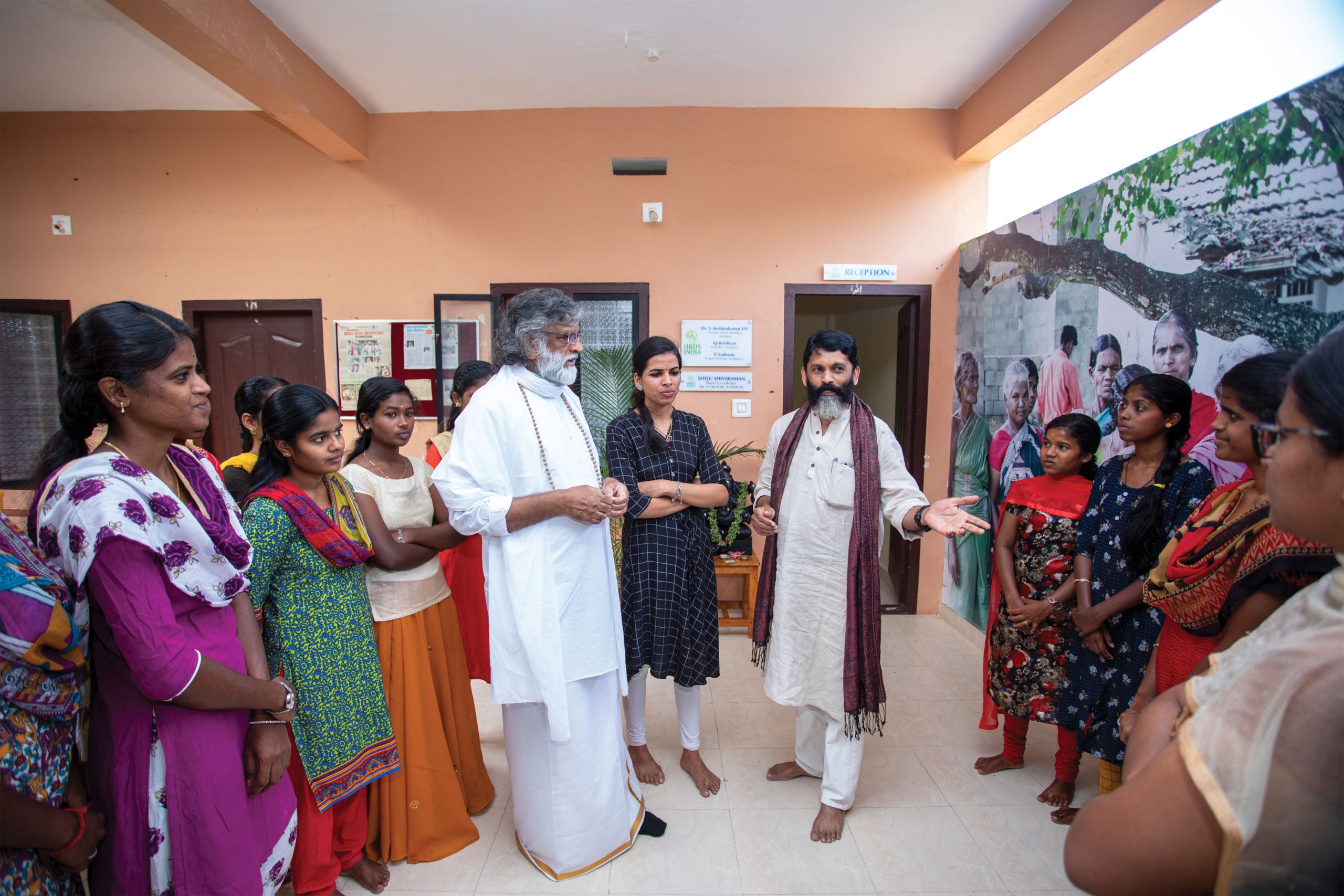
Nutritious deficiency and anaemia are alarming health problems among the tribal children in Attappady. The change from traditional food culture and not enough intake of nutritious foods have affected the health of the tribal communities. HRDS INDIA Green School also addresses the health issues of students. The school provides milk, snacks with traditional tribal food grains, meals, etc. to the students every day to ensure their proper and nutritious supply. The multidimensional approach of the school to provide Yoga, Physical Education, computer training, martial arts, counselling, etc. are also a part of HRDS INDIA Green School Curriculum ensured children are fully empowered to survive and compete with the modern world.
Krishnan credits his penchant for social work to his parents. His father, C K Krishnan was a planter and his mother VK Omana was a teacher.
“My father had started an initiative where he would bring together poor farmers of his village to farm together. It enamoured me in my childhood,” remembers Krishnan. As the eldest among his siblings, problem-solving and crisis management naturally was his job. During his college days, he was an active member of left politics. He even led many educational strikes on the campus and once was arrested by police and was put behind the bars as well.
“I was a staunch left worker. But by 1995, I completely relinquished the party. The working nature of the party and the change of leadership within the party could have been the reason,” he says in a poised manner.
After graduating from RLV college, his work allowed him to explore the most interior areas of the country where he got a first-person account of the life of various tribes of the country.
“I was working as an editor of a publication. It was a riveting experience to travel and be witness to lives of people who are so marginalised,” he says.
“The roots of HRDS emerged from this experience,” he says.
HRDS India: multi-pronged approach to tribal welfare
Aji Krishnan is always on the move, quite literally! The reasons are that HRDS expanse of work is not limited to education alone and the geography is not limited to Attapady alone. HRDS is expanding its scope of tribal welfare to several states in India. The NGO that he co-founded along with many luminaries including their president and Spiritual Guru Atma Nambi has transformed the lives of many tribals. The NGO since 1997, has been consistently working to emancipate the life quality of Tribals who live in the western ghats of India at different levels.
Sadhgraha: Rs 530 Billion housing project
The housing project Sadhgraha aims to make affordable homes to one million tribes of India living in 7 states.
“The housing project is the flagship project of HRDS. Sustainable construction was the bedrock of this project. We introduced Cement Fibre Panels technology that helped us build a 370 square feet home in 12 days with a cost of Rupees Four lakh ninety thousand,”
“By May 2021, HRDS has completed making 300 number of homes. By end of 2021, we will complete 1700 houses and by 2030, we plan to reach our target of 1 million homes.,”
Jwalamukhi:
women empowerment
At the heart of Aji Krishnan’s work through HRDS INDIA is the cause of empowerment of women by training them with skills and vocational training as well as creating self-help groups that provide microcredits to start farming. When asked about his experience in creating a movement in this direction, he said through their work they have been successfully able to develop more than 3500 Self Help groups, each consisting of five people.
“We could secure aid for this from Nobel prize winner Dr. Mohmmed Younis funds, which helped to create an income source for many families from the state Tamilnadu and Kerala,” and adds, “So far we have been able to provide skill training and job placement to 540 women.”
Along with vocational training, Aji Krishnan also started a slew of initiatives like PARASPARAM which provided socio-Psychological, learning for upskilling school-going children, an educational programme called Ekagrah and became a recognised skill development centre for the Government of India under the DDU- GKY scheme.
“Another project close to our heart is Niramaya where we have begun a research unit for traditional medicines as well as the farming of medicinal herbs under the initiative called Karshaka,” says Krishnan. They have also started sericulture and covid management in tribal belts as well as assisted the government in flood-related disasters that struck Kerala in 2018 and 2019.
After the conversation, Krishnan had to quickly leave for the airport. There was an important meeting scheduled in Gujarat where HRDS plans to start their tribal development work. When asked about the journey so far and experience, he turned back, gently smiled, and said, “What do you mean, the journey and the story have just begun. To know the real transformation, visit our tribal brothers and sisters when the pandemic restrictions end. They will tell you stories. For us, this is mere human duty.”
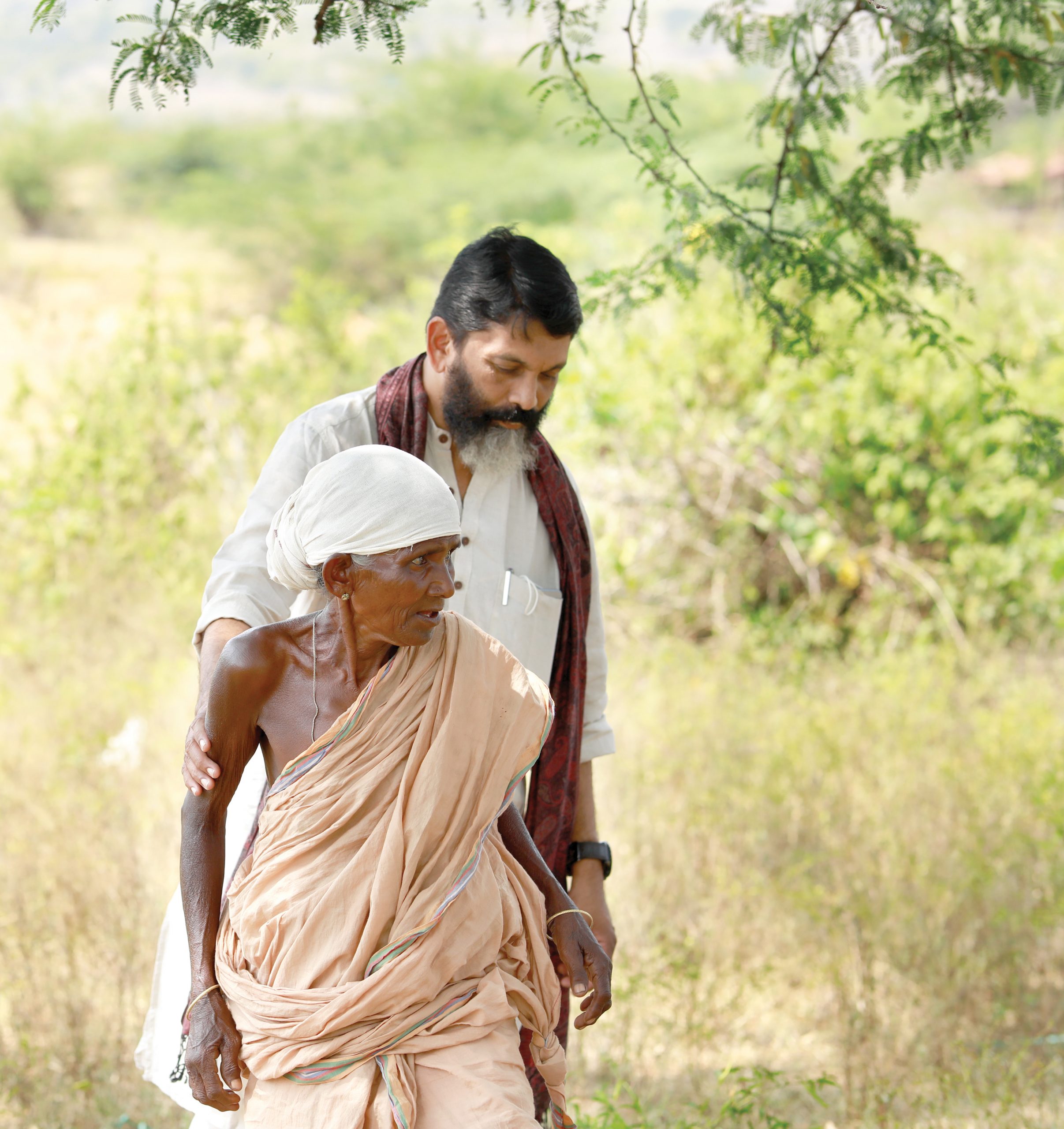
Guru Atma Nambi
AtmaJi’s life has been dedicated to the deprived where he delivers his charitable works through remunerations of HRDS INDIA, a long-standing Non-profit Organization that sheds under his transcendent umbrella of love and care. Born in March 1955, Atma Nambi is an enlightened master in the guise of an ordinary mystic. At an incredibly young age, AtmaNambi or Guruji as widely known was introduced to his spiritual safari with the help of his graceful gurus. Several karmic, yogic, and obscure manifestations were propelled at his disposal which transformed him from mundane to a mightier man. Guru Atmaji’s life is a guide to people on how to live an astoundingly simple and celebrated life despite inconveniences. He has a wide range of life experiences that led him to gather wisdom and contentment which is essential to a purposeful life. Since the age of 10, five teachers of various spiritual paths have rendered him with their benediction. In a pragmatic sense, he believes that the best way to mitigate the miserable lives of the impoverished is by first providing them with food and then with a mode to eke income for a sustainable livelihood.
Guruji has also participated in the 1st World Parliament on Spirituality, December 2012, held at Hyderabad, India. He also gave his support in requesting UNO for announcing June 21st as International Yoga Day. He was honoured with Baba Saheb National Award in the year 2016 for his contributions to society.
In recognition of his spiritual guidance and services throughout the world, he has been awarded by Global Achievers Foundation New Delhi in the year 2016. Atma Ji conducts Mass Awakenings across the globe for which he travels and connects to many countries to inculcate Spiritual harmony among the minds of people. He has devotees all over the world with Spiritual convention centres in Brazil and Chicago (US). He is presently associated as an Honorary Advisor with Peace Society Worldwide which is a Global Civil Organization for Universal Peace and Harmony. He conducts counselling sessions for the students to nurture their abilities. He creates a sense of service in every individual steering their way to help others for a better society removing the negative aspects of the society. He believes that spirituality can bring harmony and he propounds to make the world a Temple of Peace.
On his visit to Rishikesh, years ago Guru Ji met Aji Krishnan, Founder Secretary of HRDS INDIA. Since then, Guru Ji has maintained a close association with HRDS INDIA and its noble activities.
Jwalamukhi – A women empowerment project for the progression of women under pressing circumstances.
DDUGKY – A Skill development program whereby the objective is to develop a workforce empowered with the necessary and continuously upgraded skills, knowledge, and internationally recognized qualifications to gain access to decent employment and ensure competitiveness in the dynamic global market.
Karshaka” plans large cultivation of cost-effective medicinal plants as these are more affordable than conventional medicines and are easier to obtain than prescription-based medicine. The project brings awareness to the benefits of medicinal plants that have taken a backseat in the present times.
“Ekagrah” – A Scholarship Program that facilitates financial aid for higher education and consists of both need- and merit-based aid, in forms such as grants, loans, tuition remission, and private or institutional scholarships.
Sadhgraha Tribal housing project across India, particularly in the states like Assam, Jharkhand, Tripura, Odisha, Gujarat, and Kerala wherein they facilitate free boarding and lodging to tribal children for higher education and ensures the promotion of participatory character of the highly backward and deprived children by organizing them into better social collectives. The ongoing execution of the same in Palakkad and Wayanad exhibits the project’s headway in leading it to wider horizons. It would soon cover the regions of Trivandrum and Idukki to drag the tribes of this area into the mainstream.
